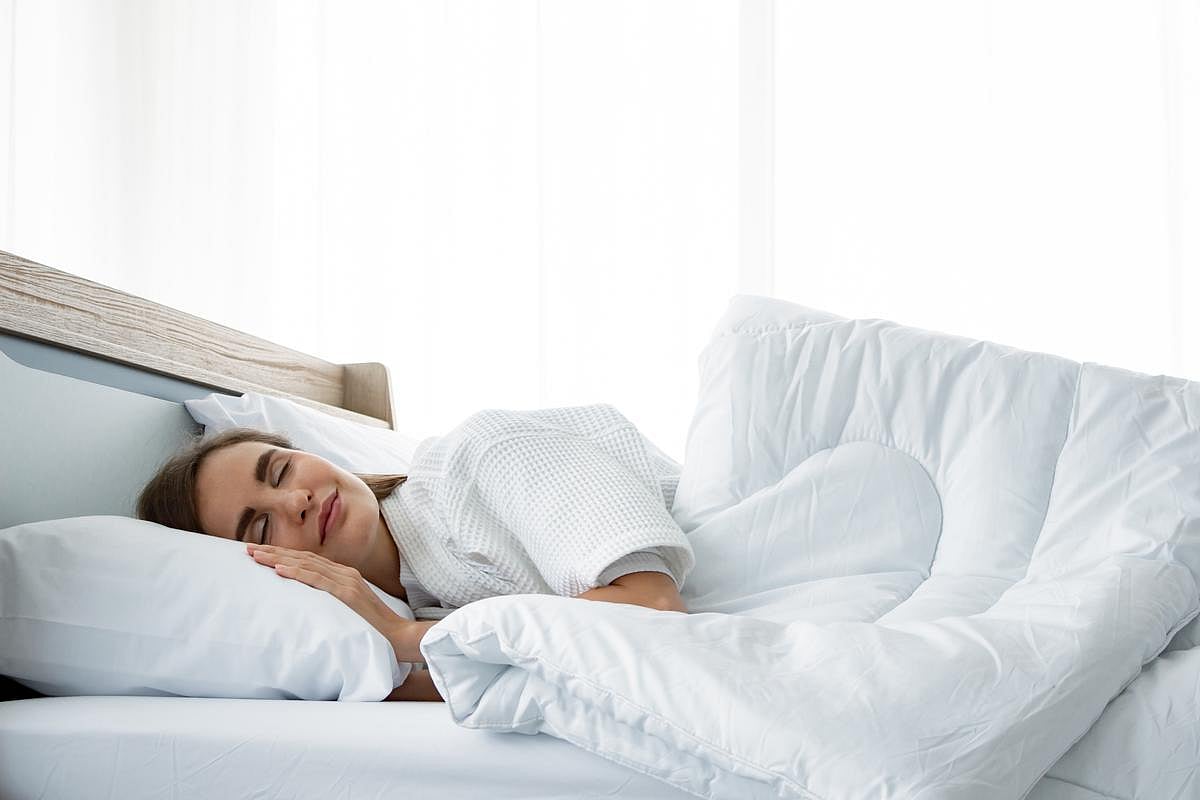Get Healthy!

- Posted October 9, 2025
Turns Out, There Are 5 Sleep Styles — And Each Affects Your Brain Differently
A new study suggests there’s more to sleep than how long you snooze each night. Your overall sleep pattern could shape your mood, brain function and even long-term health.
Researchers from Concordia University in Montreal identified five distinct sleep profiles that may help explain why some people feel well-rested while others struggle with fatigue, poor focus or emotional ups and downs.
The findings, published Oct. 7 in PLOS Biology, show that these “sleep-biopsychosocial profiles” reflect a mix of biological, mental and environmental factors — from stress and emotions to bedroom comfort — that all affect how well you sleep.
“People should treat their sleep seriously,” study co-author Valeria Kebets, a manager at Concordia’s Applied AI Institute, told NBC News. “It affects everything in their daily functioning.”
The researchers identified five sleep profiles:
1. Poor sleep and mental health
People in this group reported the worst sleep quality and higher levels of stress, fear and anger. They also had a greater risk of anxiety and depression.
2. Sleep resilience
These individuals had poor mental health or attention issues but said their sleep felt fine, suggesting “sleep misperception,” or being unaware of underlying sleep problems, researchers said.
3. Sleep aids and sociability
This group used sleep aids, but also reported strong social support and fewer feelings of rejection. However, they showed lower emotional awareness and weaker memory.
4. Sleep duration and cognition
People sleeping fewer than six to seven hours a night scored lower on tests measuring problem-solving and emotional processing. They also showed higher aggression and irritability.
5. Sleep disturbances and mental health
Those with issues like frequent waking, pain or temperature imbalance had higher rates of anxiety, substance use and poor cognitive performance.
The study analyzed data from 770 healthy adults aged 22 to 36, using MRI scans and questionnaires about sleep, lifestyle and mood.
Experts say the profiles could help doctors tailor sleep treatments in the future.
“We really need to consider multiple sleep profiles in our research and clinic — the value of a multidimensional approach to data,” Dr. Phyllis Zee, director of the Center for Circadian and Sleep Medicine at Northwestern University, who was not involved in the study, told NBC News.
Sleep experts also say the research reinforces the importance of good rest for both mental and physical health.
“Sleep is a more complex issue than just how much time you spend in bed,” Dr. Rafael Pelayo, a sleep medicine specialist at Stanford University, said in the NBC News report. “If I can improve your sleep, it has downwind effects on your overall health — not just your mental health, but your physical health.”
More information
The National Sleep Foundation has more on sleep health.
SOURCE: NBC News, Oct. 8, 2025





